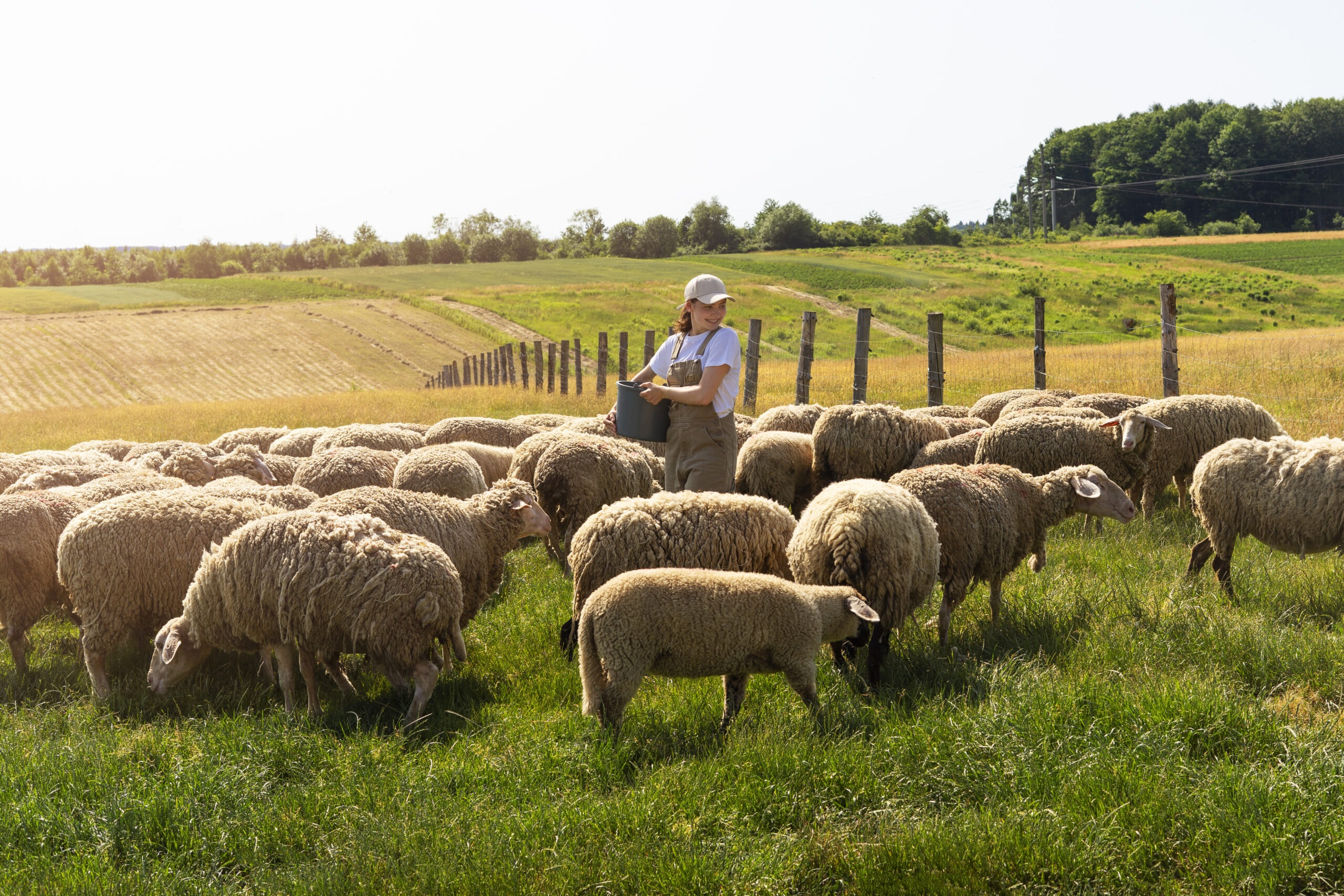Sheep farming is a profitable and sustainable agricultural venture in South Africa. The country has a diverse climate that lends itself well to sheep farming. There’s also a well-established market for sheep farmers in the country.
As an entrepreneur looking to start a sheep farming business in South Africa, there’s plenty of opportunity to tap into. This guide will provide you with key insights and steps for starting and managing a successful sheep farming business.
Market Research
The first step in establishing a sheep farming business is to conduct thorough market research. Understand the demand for sheep and sheep products, such as meat, wool, and hides – both locally and internationally. Identify your target customer base, including wholesalers, retailers, and individual consumers. Explore potential competitors and their pricing strategies.
Although sheep farming in South Africa offers many opportunities, it’s also a relatively competitive space. So, it’s essential that you have a thorough understanding of the market and how you plan to tap into it before starting a sheep farming business.
Create a Business Plan
Like with any venture, you’ll need to create a comprehensive business plan outlining your goals, strategies, and financial projections. A well-crafted business plan will serve as a roadmap for your sheep farming business. It should include details on the size and scope of your operation, expected expenses, revenue forecasts, and your marketing strategy. Consider funding options and financing for your sheep farming venture. With a clearly marked business plan in place, establishing your sheep farm should be a relatively straightforward process.
Legal and Regulatory Requirements
Farming can involve many regulations, so it’s important that you understand exactly what requirements apply to your sheep farming business before you get started. Comply with all relevant legal and regulatory requirements for livestock farming in South Africa. This includes registering your farm, obtaining permits, and adhering to animal welfare and environmental regulations.
It’s best to consult with local agricultural authorities to ensure full compliance.
Site Selection
There’s a good chance this is actually the first that you establish when getting into sheep farming, as you’ll need plenty of land to get a commercial sheep farm operational. South Africa’s diverse climates offer a range of options, but ensure it aligns with the breed and type of sheep you intend to raise. Adequate access to water and grazing land is essential. Consider factors like climate, rainfall, and market proximity when selecting a site.
Sheep Breeds and Management
Select the most appropriate sheep breeds that suit your farming site and objectives. South Africa has various sheep breeds, including the Dorper, Merino, and Boer, each with distinct advantages. Understand the specific needs and characteristics of your chosen breed. Develop a comprehensive management plan covering feeding, shelter, healthcare, and reproduction. Of course, you also need to consider the profitability behind each sheep breed.
Infrastructure and Equipment
Invest in the necessary infrastructure and equipment, including fencing, shelters, water troughs, and handling facilities. You’ll need proper infrastructure in place to ensure the well-being of your sheep and the efficient management of your farm.
Feeding and Nutrition
Sheep require a balanced diet to thrive. Consult with a livestock nutritionist to create a feeding plan that meets the nutritional needs of your sheep. Consider factors such as grazing, supplemental feeding, and seasonal variations. This all comes down to your sheep breed and the location of your farm.
Health and Veterinary Care
Regular health check-ups and vaccinations are crucial for maintaining a healthy sheep flock. Establish a relationship with a local veterinarian experienced in sheep care. Implement a preventative health program to minimize the risk of disease outbreaks.
Marketing and Sales
Once your sheep farm is operational, how do you plan to sell your product? Develop a marketing strategy to reach potential customers. Use online marketing, trade fairs, and local agricultural networks to promote your sheep and sheep products. Establish strong relationships with buyers and distributors to ensure consistent sales.
Record Keeping and Financial Management
Maintain detailed records of your sheep farming operation. This includes financial records, breeding and health records, and production data. Effective record-keeping will help you make informed decisions and improve your farm’s performance.
Sustainability and Environmental Considerations
Consider sustainable farming practices and minimize the environmental impact of your operation.
This includes responsible grazing management and waste disposal. Sustainable farming practices can enhance your farm’s reputation and reduce long-term costs.
Starting a sheep farming business in South Africa can be a rewarding endeavour. With proper planning and dedication, you can build a successful and sustainable sheep farming operation. Just remember that continuous learning and adaptation are key to long-term success in this industry.
SEE ALSO: CATTLE FARMING IN SOUTH AFRICA


















.png)


Discussion about this post